MercoPress. South Atlantic News Agency
Tag: US economy
-
Tuesday, April 10th 2018 - 08:38 UTC
US budget deficit expected to balloon to US$ 1.5 trillion over the next decade
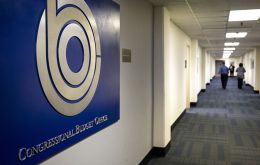
With the passage of deep tax cuts late last year, annual United States budget deficits are expected to balloon over the next decade, the nonpartisan Congressional Budget Office said on Monday.
-
Wednesday, February 28th 2018 - 09:53 UTC
Fed chairman Powell anticipates gradual interest rate increases despite larger government spending
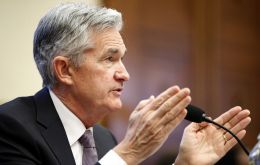
Federal Reserve Chairman Jerome Powell, pledging to “strike a balance” between the risk of an overheating economy and the need to keep growth on track, told U.S. lawmakers on Tuesday that the central bank would stick with gradual interest rate increases despite the added stimulus of tax cuts and government spending.
-
Thursday, February 22nd 2018 - 09:07 UTC
Fed more positive on economic outlook ...and more rate hikes expected in 2018
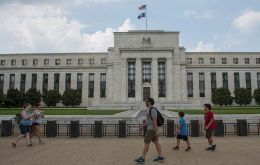
United States Federal Reserve officials grew more positive on the economic outlook, citing “substantial underlying economic momentum,” and were increasingly optimistic about achieving their inflation target, according to minutes of last month’s policy meeting.
-
Thursday, February 15th 2018 - 09:25 UTC
US January inflation, highest jump in a year; anxiety over higher borrowing rates
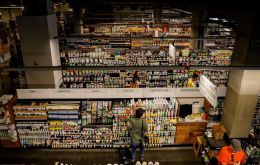
Inflation pressures appear to be building in the U.S. economy, a prospect that is heightening anxiety about potentially higher borrowing rates that could slow economic growth. The latest source of concern was a report on Wednesday that showed a key measure of inflation rising in January by the sharpest rate in a year. The increase was led by higher prices for clothing, housing and auto insurance.
-
Saturday, January 27th 2018 - 09:39 UTC
Trump tells Davos forum “America First”, but it does not mean America alone
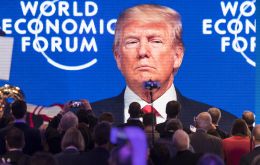
President Trump declared America “open for business” in a speech on Friday to global to political and business elites in Davos, Switzerland, while taking a hard line on trade and vowing to make commerce with other countries “fair and reciprocal.”
-
Saturday, January 27th 2018 - 09:17 UTC
US economic growth in the fourth quarter slows to 2.6%, and 2.3% for 2017
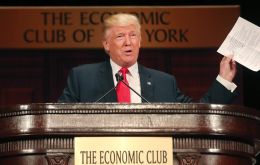
US economic growth slowed unexpectedly to an annualised rate of 2.6% in the last three months of 2017, the Commerce Department said on Friday. Economists had expected the rate to be 3% - the same as the three months to September.
-
Wednesday, December 27th 2017 - 09:52 UTC
US poverty rate down; but top 5% of families accounted for more than one fifth of total income in 2016

A stronger US economy lifted American household incomes in 2016 and drove the poverty rate down to the level seen before the financial crisis. The median household income increased by 3.2% to US$59,039, rising for a second consecutive year as more people found full time jobs.
-
Thursday, December 14th 2017 - 13:54 UTC
Federal Reserve increases interest rate by a quarter of a point

The US Federal Reserve has increased interest rates by a quarter of a percentage point - the third rate hike this year. It comes as Fed chair Janet Yellen prepares to leave the role
after Donald Trump decided to replace her. -
Wednesday, October 18th 2017 - 08:24 UTC
The Fed started to reduce its US$4 trillion boost portfolio from the financial crisis

The Federal Reserve has started to run down some of the investments it made to boost the US economy after the financial crisis. The Fed holds a US$4.2trn portfolio of US Treasury bonds and mortgage-backed securities, and it will initially cut up to US$10bn each month from the amount it reinvests.
-
Sunday, August 6th 2017 - 11:58 UTC
US unemployment drops to 4.3%, but hourly earnings remain flat
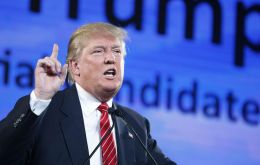
The United States economy added a solid 209,000 jobs in July, exceeding economists’ estimates as the labor market shows few signs of slowing down. The unemployment rate last month fell to 4.3% from 4.4%, the Labor Department reported on Friday.
